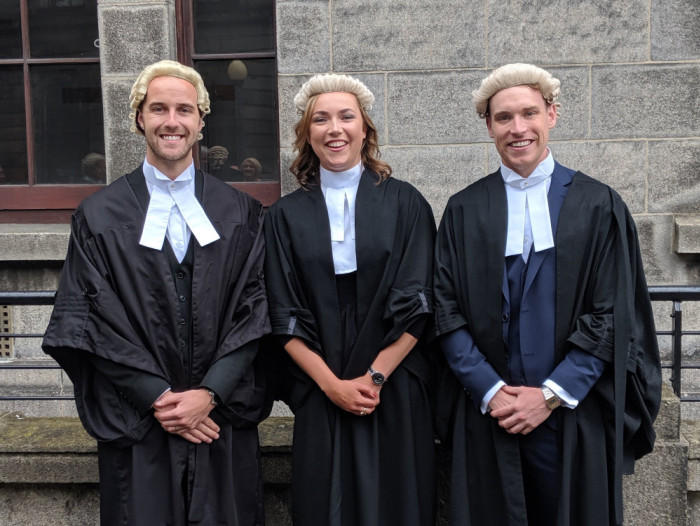Becoming a Barrister
The Honorable Society of King’s Inns has been training barristers since its inception. Students Admitted to the Degree of Barrister-at-Law are recognised not only as qualified but highly adept at the practise of the law. Delivered as either a one–year full time or two–year part–time modular course, the Degree is a highly sought–after qualification.
Qualification as a barrister takes place in three stages: the academic stage, the vocational stage and the training contract stage.
Admission to the degree of Barrister–at–Law – Upon successful completion of the degree course, a student may be admitted to the degree of Barrister–at–Law. Usually, there are two admission ceremonies during the year: mid–July and mid–October. Both ceremonies take place in King’s Inns.
Irish: Legal Practitioners (Irish Language) Act 2008 – Under the provisions of the legal Practitioners (Irish language) Act 2008, all students on the degree of Barrister–at–Law must undertake a compulsory course in Irish legal terminology and the understanding of legal texts. There is no accompanying examination or assessment to this course but attendance is compulsory.



